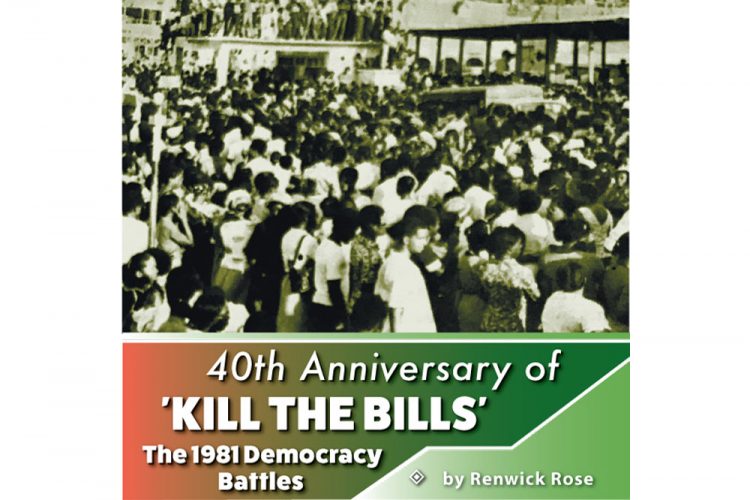40th Anniversary Of 1981 Bills-Part 5

St Vincent and the Grenadines entered the month of April 1981 in a state of deteriorating social and economic conditions with the industrial situation rapidly worsening. In the earlier series we made mention of several industrial disputes;
among them some requiring recognition of trade unions and the right to bargaining power on behalf of their workers.
This did not seem to be a priority for the government of the day which continued to ignore the growing unrest.
Unfortunately, some of them were critical not just to the industrial relations climate, but to the very well-being of the Vincentian people.
Take the critical services of water and electricity, essential for everyday living. At the electrical services utility, VINLEC workers were demanding the right to a poll to determine trade union recognition. They avowed their support for the National Workers Movement, led by a young trade unionist Bro. Noel Jackson, but the Ministry of Labour ignored their wishes. This led to six local unions issuing a joint statement on April 7 calling on the management of VINLEC to conduct a fair poll to determine trade union representation.
Meanwhile, at the other major public utility service, the Water Authority, long overdue grievances led to sporadic industrial action and threats of a major strike. In early February, water workers had taken strike action, not only causing great inconvenience to consumers, but also severe embarrassment to local authorities as both the West Indies and English cricket teams were here for a one-day match.
The unrest was not limited to industrial relations only. In early April it took a last-minute settlement to avert a strike in the banana industry. The issue centred on the port where the union representing the workers threatened strike action after negotiations over wage increases for workers broke down. The strike would have held up the banana shipment to the UK at a time when the state of the local economy could ill afford such a loss of revenue.
Meanwhile, on the state-owned Richmond Vale agricultural estate, workers went on strike over the failure of the Agricultural Development Corporation to recognize the Workers and Peasants Union led by an Opposition Parliamentarian, Hon. Calder Williams. By early April the strike was in its eighth week and huge losses were being incurred on the estate.
To compound all of this, both the Teachers’ Union and the Civil Service Association, (the latter changed its name to the current one, the Public Service Union, at its Annual General meeting on April11), were demanding negotiations for salary increases and other benefits for their members.
Faced with this situation, one would think that a caring government would carefully examine the situation and put measures in place to have these critical matters resolved. But the government of the day appeared to be under the influence of two volatile Ministers with powerful portfolios relating to legal affairs, Labour, and Communications and Works.
Rather than holding discussions with the unions and observing civilized industrial practice, a series of bellicose statements and threats were being made to intimidate workers and their unions. This even bordered on government enacting legislation to “teach the workers a lesson”. It would prove to be no idle threat. The storm clouds were gathering.
Part 6 next week: The government plays its hand.
Renwick Rose









